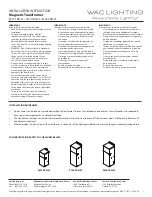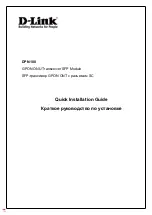
26
Product description
2.3 Protections
The equipment has a protection system which is partially integrated and partially optio-
nal both for the hardware and the software.
2.3.1 Software protections
2.3.1.1 IPF (Intelligent Proportional Foldback)
The IPF is an intelligent system which reduces the equipment’s output power in the
event of strong load mismatch, thus preventing the machine from turning off.
The activation of this feature is shown on the display as alarm “026”.
2.3.1.2 IPC (Intelligent Power Control)
When the equipment is working properly, the IPC keeps the output power constant
within +/-1% of the target set, irrespective of mains voltage, temperature and load
variations.
This contributes greatly to making the equipment insensitive to its working conditions.
The IPC also allows to optimize the RF section efficiency by making the MOSFETs con-
stantly work at maximum efficiency, thus minimizing overall electrical consumption.
2.3.1.3 Safety Management (“Lifextender”option)
®
The Safety Management consists of algorithms which perform a real-time analysis of
the transmitter’s operating status and operates in order to maintain the output power
set, according to the type and severity of any anomalies (internal or environmental)
which may occur.
The Safety Management can command an output power reduction proportional to the
severity of the anomaly that arises
The algorithms act at different levels and in various sections of the equipment: Thermal
Management on the RF unit, Current Management on the power supply unit, Thermal
Management on the power supply unit, Fault management on the RF unit, Fault Mana-
gement on the power supply unit, Cooling Management on the fan unit.
Thermal Management on the RF unit (Lifextender) ®
Should the temperature measured in the vicinity of the MOSFETs exceed 72 °C, a first
level of Derating intervenes slightly in order to reduce the temperature through an
output power reduction. This power reduction is the minimum allowed in order to reach
a thermal balance at a temperature lower than 72°C. The output power reduction never
exceeds 48% with this first Derating. In other words, the output power always stays
above 52% of that set by the user and the
“-3 dB” warning and relative alarm do not intervene.
This first Derating level is effective in virtually all cases.
The activation of this feature is shown on the display as alarm “010”.
Should the first level Derating be insufficient (extremely rare), a second level inter-
venes, further reducing the power, thus obtaining a thermal balance status which is
compatible with the safe operation of the equipment even if it is below
- 3dB (with subsequent alarm “005”).
Should the second Derating be ineffective (in case of external conditions which are not
compatible with the safe operation of the equipment) the equipment switches off.
In this case, if the temperature decreases, the power increases proportionally. If it de-
creases by 10°C (i.e. it reaches 62°C) the Derating mechanism stops
and full power is restored. After 3 failed attempts, the control logic blocks the equip-
ment (alarm “011”).
Summary of Contents for ETG2500
Page 4: ......
Page 54: ...54 Main Men Profiles O Main Men Exciter monitor E Instructions for use...
Page 55: ...55 Main Men Status Alarms S Main Men Events History H Instructions for use...
Page 56: ...56 Main Men Password K Main Men Password K Password K Instructions for use...
Page 58: ...58 Main Men System Y Main Men System Y System settings X Instructions for use...
Page 59: ...59 Main Men System Y Comm settings U Main Men System Y Audio trim alrm J Instructions for use...
Page 60: ...60 Main Men System Y Clock power set C Main Men System Y SMS phone set P Instructions for use...
Page 61: ...61 Main Men System Y User warning F Main Men System Y En 0 31 alrm SMS V Instructions for use...
Page 63: ...63 Main Men Debug D Main Men Debug D GSM debug G Instructions for use...
Page 64: ...64 Main Men Debug D Uarts F Main Men Debug D Uarts F Uart 0 1 2 Instructions for use...
Page 67: ...67 CAB0324 0 CAB0324 0 CAB0324 0 Instructions for use...
Page 70: ...70 CN1 CN2 CN3 CN4 CN5 CN6 CN7 Maintenance CONCENTRATOR BOARD...
Page 71: ...71 n 2 n 1 n 3 n 4 n 5 n 6 n 7 Maintenance RF MODULES...
Page 72: ...72 Maintenance...
Page 74: ...74 n 2 n 1 n 3 SW1 SW2 Maintenance POWER SUPPLIES...
Page 78: ...78 Maintenance...
















































